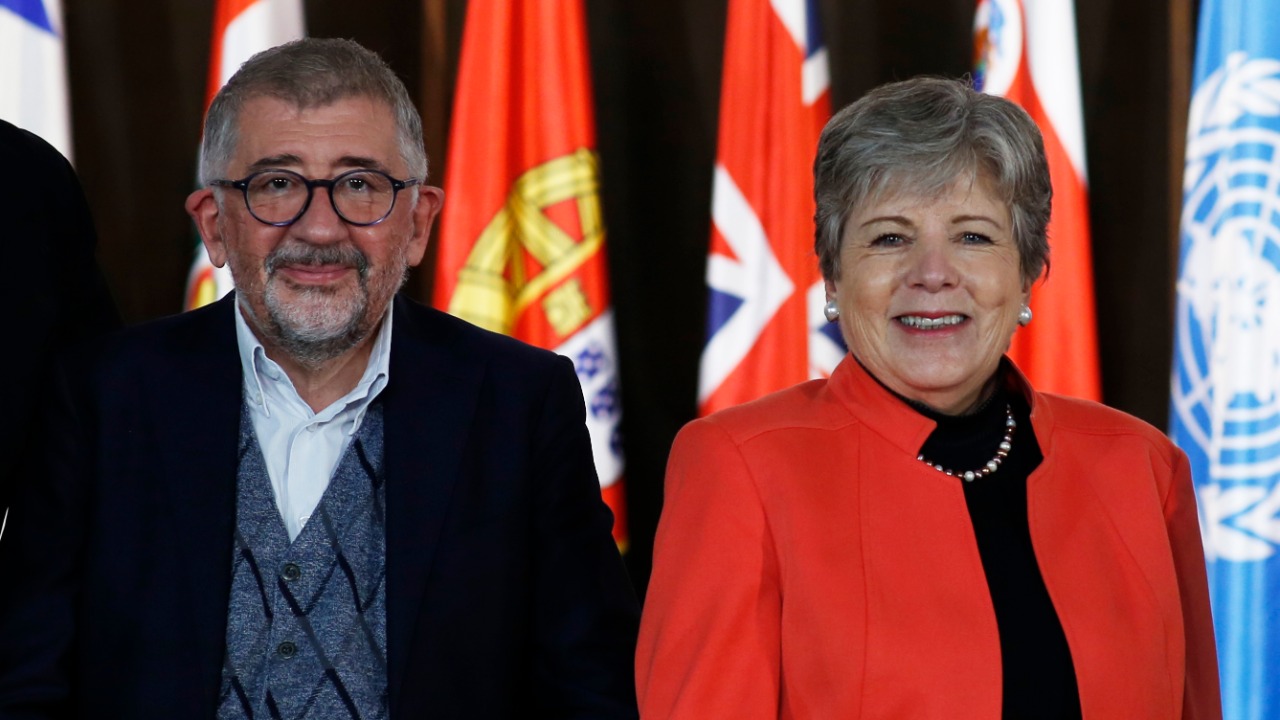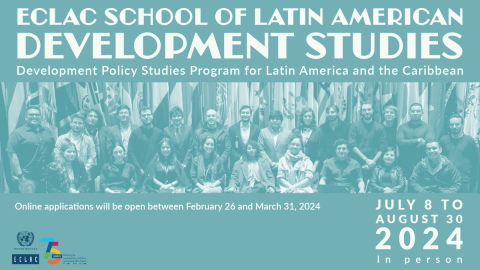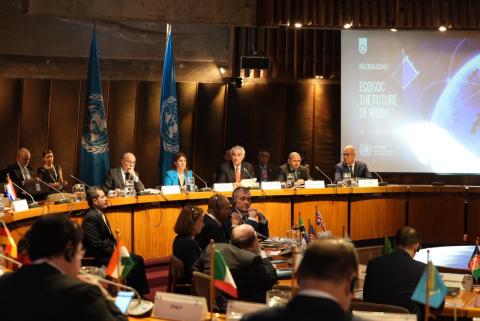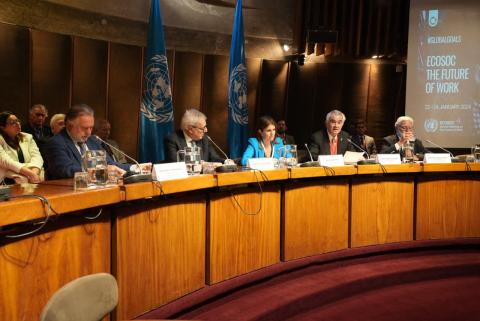Announcement
The United Nations Secretary-General, António Guterres, has appointed Argentine economist Mario Cimoli, the Deputy Executive Secretary of the Economic Commission for Latin America and the Caribbean (ECLAC), to serve as the institution’s Acting Executive Secretary starting on April 1, 2022 and until further notice.
Mario Cimoli will replace Mexican diplomat Alicia Bárcena, who concluded her mandate on March 31, after nearly 14 years at the helm of this UN regional commission.
Cimoli, a PhD from the University of Sussex in the United Kingdom and Full Professor of Political Economy at the Ca' Foscari University of Venice in Italy, has more than 20 years of work experience in the United Nations and ECLAC.
Within the regional commission, he has served as Economic Affairs Officer of the Division of Production, Productivity and Management (1999-2009), Head of that same division’s Innovation and ICT Unit (2009-2010), Director of the Division of Production, Productivity and Management (2010-2018), and Officer-in-Charge of the Division of International Trade and Integration (2015-2020).
With regard to his academic experience, he has a long trajectory as Visiting Professor and Researcher at various institutions, such as the University of Udine, the Metropolitan Autonomous University of Mexico (UAM), the University of Pisa, the University of Pavía and the National University of General Sarmiento.
His extensive publication record reflects a substantial contribution to the fields of micro and macroeconomic policies, with a focus on development paths, economic growth and the interconnections between industrial policy, technological development and innovation. His most recent publications include: Industrial Policies, Patterns of Learning and Development: An Evolutionary Perspective (2020); Choosing sides in the trilemma: international financial cycles and structural change in developing economies (2020); and A technology gap interpretation of growth paths in Asia and Latin America (2019). These complement his seminal works: Learning, Technological Capabilities and Structural Dynamics (2011); Innovation and Economic Development: The Impact of Information and Communication Technologies in Latin America (2010); Industrial Policy and Development, The Political Economy of Capabilities Accumulation (with Dosi, G. and J. E. Stiglitz, 2009); and Institutions and policies in developing economies (with Dosi, G., R. R. Nelson, and J. E. Stiglitz, 2009).
In addition, he was Co-Director of the Industrial Policy Task Force of Intellectual Property Rights Regimes for Development Task Force, along with Giovanni Dosi and Joseph E. Stiglitz, of Columbia University (2004-present).



